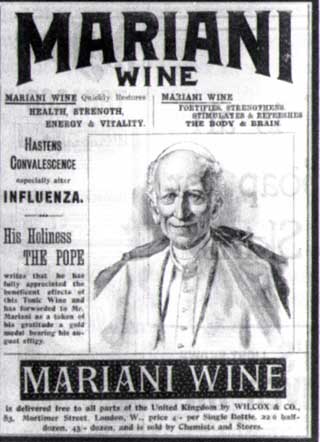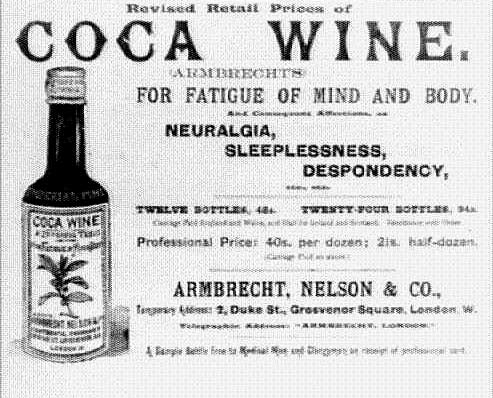Coca, Bolivia, and Law 1008
Drug War Rant Friday, March 7, 2008
http://rcs.salon.com/rcsComments/comments?u=2762&p=3114&link=http%3A%2F%2Fblogs.salon.com%2F0002762%2F2008%2F11%2F10.html%23a3114
There's a fascinating 5-part series of videos on Bolivia and coca at vbs.tv. Definitely worth watching -- I learned quite a bit about the coca leaf. I was particularly interested in Law 1008 -- a law written by an American in English controlling what Bolivians could do with their coca leaves. A law, like every drug prohibition law, that had roots in racism and lies. And a law, like every other drug prohibition law, that actually caused the conditions for developing a massive international black market.
The first three parts of the video are the most interesting, and you do have to get past the smarmy fashion disaster correspondent, but it's worth it.
Thanks to Drug War Flipside
Coca Cookies and Constitutional Dreams By Jean Friedsky
Special to The Narco News Bulletin December 2, 2005
Decriminalization and How It Could Change Life for Bolivia’s Cocaleros
Coca leaves at market.
Photo: D.R. 2004 Jeremy Bigwood
The Contradictions of Coca Eradication in Bolivia By Reed Lindsay
Narco News Authentic Journalism Scholar
February 15, 2003
The drug war in Bolivia has hit a brick wall. While the Bolivian government wiped out more than 70 percent of the nation’s coca production in the late 1990s, the U.S.-backed eradication program has ignited a firestorm of opposition from coca growers, called cocaleros, in the Chapare region of central Bolivia. A growing movement of coca growers has not only stopped the eradication program in its tracks, it has gained widespread popular support that nearly swept cocalero leader, Evo Morales, into the presidency.
Behind the failure of the U.S.-promoted eradication policy in the Chapare region is a gross misunderstanding of the use of coca leaves in Bolivia and elsewhere, say activists and experts attending the Out of the Shadows drug legalization conference in Merida, Mexico.
Coca leaves have been consumed and used for thousands of years in Bolivia for medicinal and religious purposes. Today, coca is primarily “consumed orally,” in a manner similar to chewing tobacco, but it is also used to make tea and in indigenous ceremonies.
Peruvian Vintage Wine of Coca...
According to the Sears, Roebuck and Co. Consumers' Guide (1900)
A POLITICAL DRUG WAR IN BOLIVIA By Jens Gluesing
Is Coca the New Hemp? March 28, 2006
Bolivian President Evo Morales has put a stop to the eradication of coca plantations, triggering fears in Washington of a new wave in the illegal drug trade.
Bolivian President Evo Morales wants to make coca leaves the new hemp, but critics believe his promotion of the plant used to create cocaine will just boost the illegal drug trade.
The wine, a bit on the sweet side, is supposedly a remedy against Parkinson's disease and impotence and, according to the label, it is especially suitable for "athletes and singers." In small doses, that is, because the wine is pressed from coca leaves, enhancing the effect of the alcohol. If you get drunk, you don't have to worry about how you're going to feel the next day because "coca wine doesn't cause a hangover," says Melby Paz.
A Word From Our Sponsor...
His Holiness The Pope enjoyed the invigorating properties of coca wine. Leo XIII carried a personal hipflask to fortify himself in time of need. A grateful Pope awarded a Vatican gold medal to its distinguised orginator, the Corsican-born pharmacist and businessman Angelo Mariani. Mariani had a keen eye for the benefits of celebrity-endorsement.
ANDEAN DRUG WAR UPDATE By Bill Weinberg
Dissent Against Washington's Drug War Emerges as Chaos Spreads
Bolivia and Peru defend coca use
The UN lists coca as a controlled substance like cocaine or opium
Tonnes of coca leaves grown illegally in the village of Huaculi, central Bolivia, are burnt (Dec 2007)
The UN lists coca as a controlled substance like cocaine or opium
Bolivia and Peru have defended the continued, traditional use of coca leaves after they were criticised by a UN drugs agency report.
cocaine toothache drops (1885)
Was the government to prescribe to us our medicine and diet, our bodies would be in such keeping as our souls are now- Thomas Jefferson
Tuesday, November 11, 2008
Coca, Bolivia, and 'Law' 1008
Labels:
Bolivia,
Coca,
criminal mercantilism,
legislative crime
Subscribe to:
Post Comments (Atom)







No comments:
Post a Comment